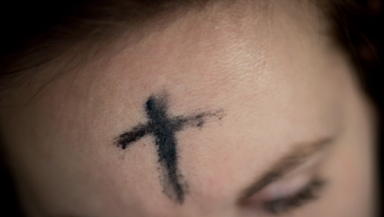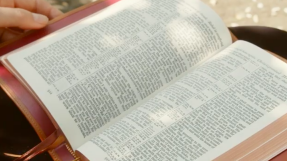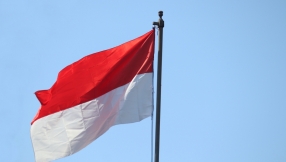There's always a tension when it comes to Lent, which begins today, Ash Wednesday. Is it to be kept in secret, a transaction or series of transactions between the sinner and God? Or is it an opportunity for public witness? The church is so fragile nowadays – or feels itself fragile, anyway – that people seem to want to take every possible opportunity to speak up. Hence the public ashings that see otherwise worldly passers-by walking off with dirty faces, and the 40 days of kindness or consumer boycotts or whatever.

It's all good, and perhaps it marks a sort of fight-back against the colonisation of the church's calendar by the commercial. Lent is not just another Dry January, after all; its diet is for the soul, not the body.
But there's a lot to be said for keeping Lent in such a way that no one knows you're doing it at all. Jesus said, 'But when you fast, put oil on your head and wash your face, so that it will not be obvious to others that you are fasting, but only to your Father, who is unseen; and your Father, who sees what is done in secret, will reward you' (Matthew 6:17-18).
And it's this interiority that is so alien to our culture today, when something hasn't really happened until it's been Instagrammed.
A 19th-century church leader and poet who is not really read today – though one or two of his hymns have survived – is John Keble, founder of the Oxford Movement of High Church Anglicans. His collection The Christian Year – a poem a day throughout the Church calendar, published in 1827 – ran through more than a hundred editions and it was said to be the most popular book of verse in 19th century.
In Keble's Ash Wednesday poem, he stresses this personal, private – even secret – aspect of Lent. We should hide our grief over our sin and guilt, he says. We have no right to share it with those we love – 'For why should Innocence be told/ The pangs that guilty spirits bow?'
But our sense of isolation ought to drive us to God. The angels look down on us; there are glimpses of hope like stars in a dark night. As Jesus was comforted in the wilderness, he says, God will comfort us; and as increasing self-knowledge goes with increasing knowledge of forgiveness, sinners will 'learn to bear their Saviour's blaze/ When Judgment shall undraw the screen'.
Ash Wednesday is a significant date in the Christian calendar. But it's as well to be reminded that it's not all about evangelism, or about making some sort of impact or statement. Public faith is important; but public faith is nourished by what's going on in our hearts.
Mark Woods is the author of Does the Bible really say that? Challenging our assumptions in the light of Scripture (Lion, £8.99). Follow him on Twitter: @RevMarkWoods













